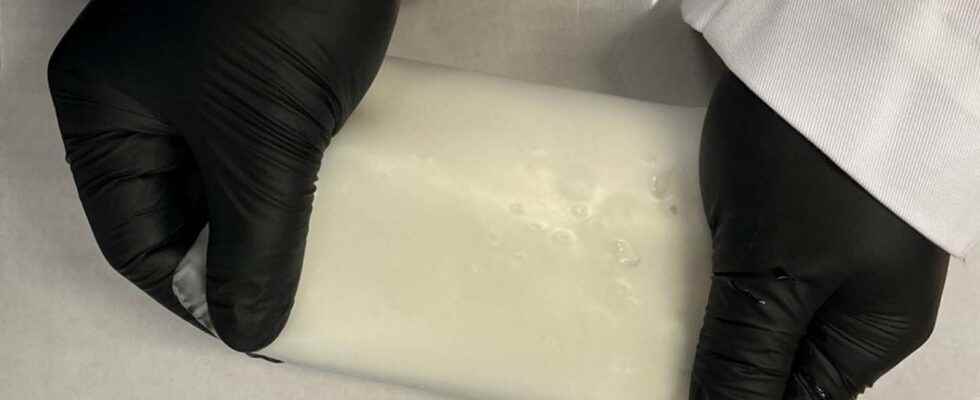Researchers have succeeded in creating electric car batteries that are safer, more environmentally friendly, and with better capacity. Their secret? A rubber electrolyte.
You will also be interested
[EN VIDÉO] From Volta to graphene: the evolution of batteries The most common type of battery is the lithium-ion battery. Several technologies are in line to replace it.
the rubber, an electrical insulator, is not the first material that comes to mind to improve the functioning of batteries. Yet this is what researchers from Georgia Institute of Technology in the USA. In their article published in the journal Nature, they explain how they managed to create a state battery solid rubber based.
The lithium-ion batteries usually use an electrolyte liquid who can take fire if they overheat or become damaged. In addition, over time they form dendrites that reduce performance. Conversely, the batteries in the solid state are more fragile and the contact of the solid electrolyte with the electrodes problematic.
Solid state batteries with high energy density
The researchers therefore used an elastomer to replace the electrolyte. Through a process of polymerization at low temperature, they managed to create crystals plastics interconnected in the rubber structure. This creates an electrolyte with a conductivity ionic and electrochemical stability, which does not form dendrites while ensuring good contact with the surface of the two electrodes.
Such batteries would be more stable and secure, better for the environment and cost less to produce. This technology is primarily intended for electric cars and achieves an energy density of more than 410 watt hours per kilogram, compared to around 260 watt-hours per kilogram for car batteries You’re here. The batteries rubber-based could therefore greatly increase the range of electric cars.
Interested in what you just read?
.
fs1
